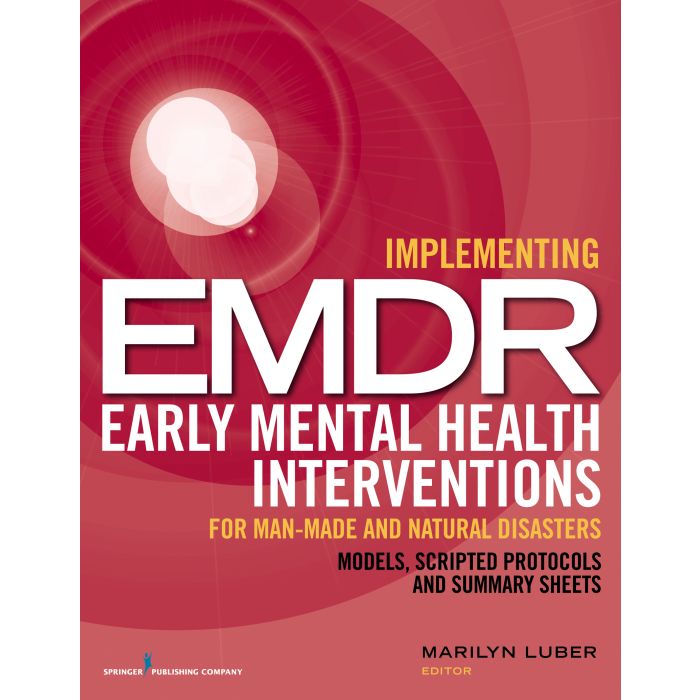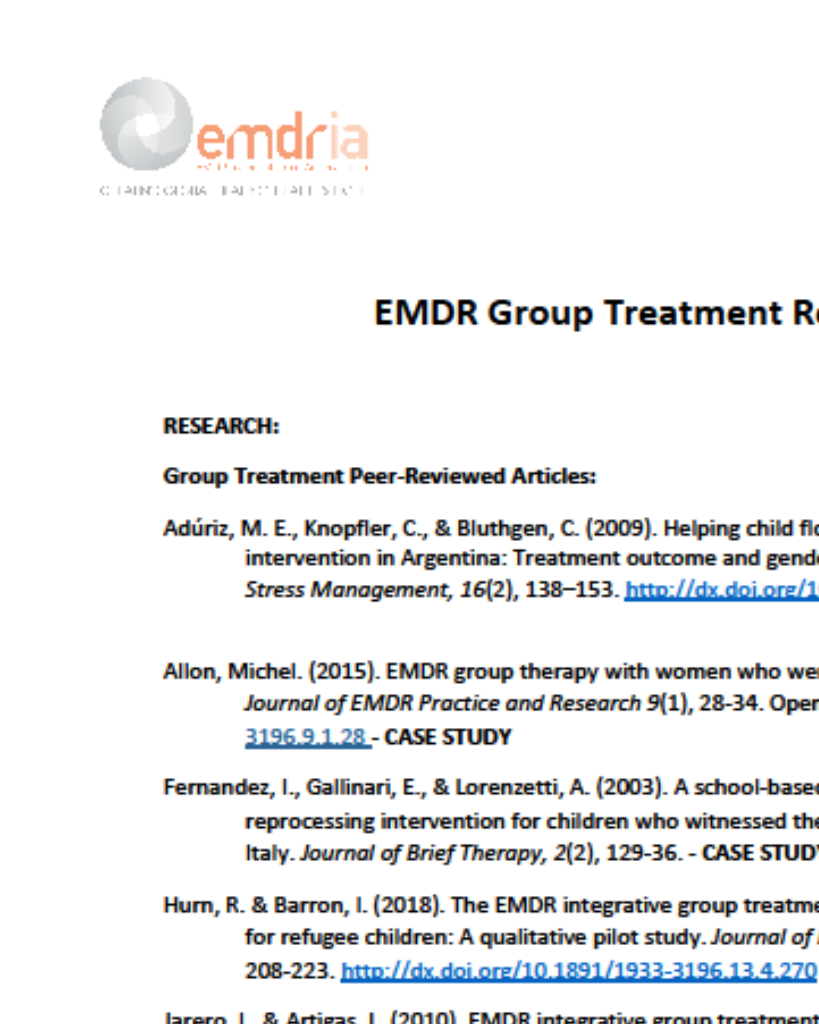Adapting the group traumatic episode protocol approach as a paraprofessional-led early intervention for law enforcement personnel
Study evaluating the feasibility and effectiveness of a paraprofessional led adaptation of EMDR called mGTEP within the law enforcement population.
Article Abstract
“Background: Law enforcement personnel experience high levels of occupational stress and frequent exposure to potentially traumatic events, requiring effective early interventions. The Modified Group Traumatic Episode Protocol (mGTEP) is an adaptation of Eye Movement Desensitization and Reprocessing (EMDR) designed to help individuals process traumatic experiences in a group setting. This study evaluated the feasibility and effectiveness of a paraprofessional-led mGTEP within the law enforcement population.
Methods: Police officers and staff, with peer support background, were trained as paraprofessionals to facilitate mGTEP as early mental health support for their colleagues. Their role bridges the gap between informal peer support and professional mental health services. Psychological distress (single-item scale), depression (PHQ-9), anxiety (GAD-7), and trauma-related stress (PCL-5) were assessed at baseline (T1), post-intervention (T2), and follow-up (T3). Multilevel statistical analyses were conducted to evaluate changes over time. A sample of 40 law enforcement personnel participated in online mGTEP sessions. The sample consisted of mostly males (54 %), ranging from age 28 to 53 with an average of 14 years working in the police. Multilevel modelling was applied to the repeated measures design to analyse changes across three time points, combining both random (e.g., participant) and fixed (e.g., time) effects.
Results: Significant reductions were observed from T1 to T2 in distress (d = 0.69, large), anxiety (d = 0.65, large), and trauma-related stress (d = 0.48, medium), with sustained improvements in depression (d = 0.26, small) and trauma-related stress (d = 0.48, medium) at follow-up. Anxiety scores slightly increased between T2 and T3 (d = 0.36, small). Similarly, distress scores did not continue to decline beyond T2. These results potentially reflect the ongoing demands of policing and continued exposure to trauma.
Conclusion: This study highlights the feasibility of mGTEP as a paraprofessional-led early intervention for law enforcement personnel, demonstrating significant symptom reductions. While improvements in depression and trauma-related stress persisted, fluctuations in anxiety and distress levels suggest the need for continued support post-intervention. Given the cumulative nature of occupational stress in policing, regular implementation may be necessary to sustain benefits. Integrating mGTEP into existing mental health programs could enhance accessibility, allowing it to complement other psychological support initiatives.”
—Description from publisher
Article Access
Open Access
Ozga, M., Hart, M., Niyonsenga, T., & Coulter, L. (2025). Adapting the group traumatic episode protocol approach as a paraprofessional-led early intervention for law enforcement personnel. Comprehensive Psychiatry, 140, 152596. Open access: https://doi.org/10.1016/j.comppsych.2025.152596
Date
April 11, 2025
Creator(s)
Monika Ozga, Maryjo Hart, Theo Niyonsenga
Contributor(s)
Larissa Coulter
Client Population
First Responders/Healthcare Workers
Practice & Methods
EMDR Early Intervention, Group
Extent
9 pages
Publisher
Elsevier
Rights
© 2025 The Authors. Published by Elsevier Inc.
APA Citation
Ozga, M., Hart, M., Niyonsenga, T., & Coulter, L. (2025). Adapting the group traumatic episode protocol approach as a paraprofessional-led early intervention for law enforcement personnel. Comprehensive Psychiatry, 140, 152596. Open access: https://doi.org/10.1016/j.comppsych.2025.152596
Audience
EMDR Therapists, Other Mental Health Professionals
Language
English
Content Type
Article, Peer-Reviewed
Access Type
External Resource, Open Access





